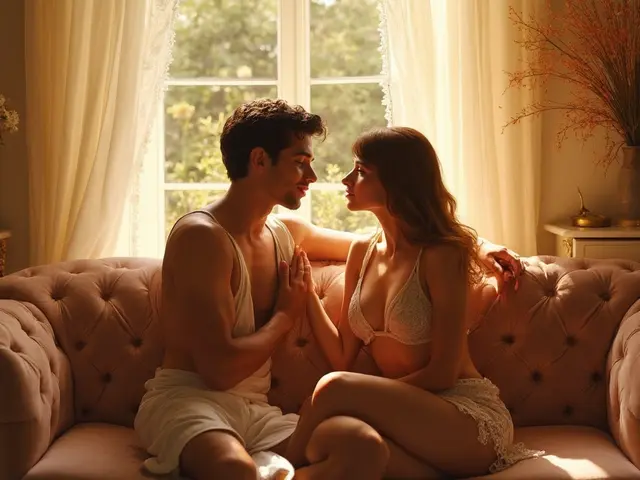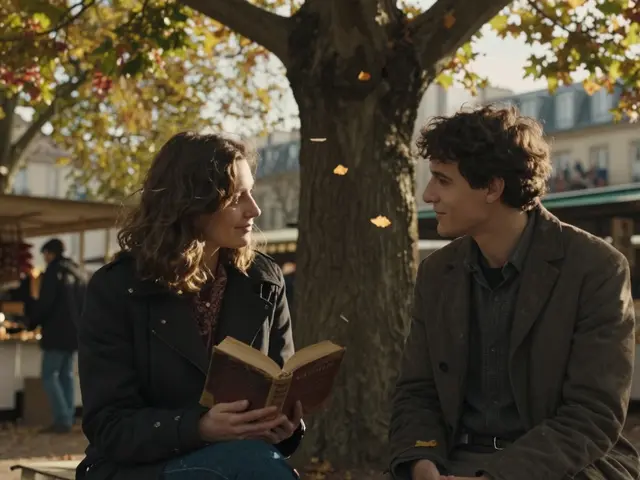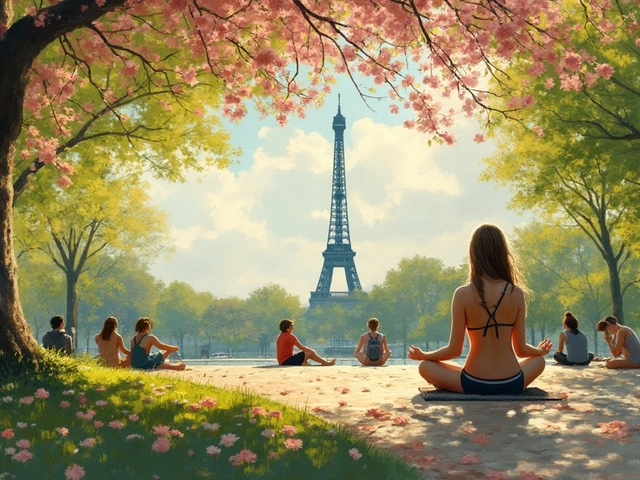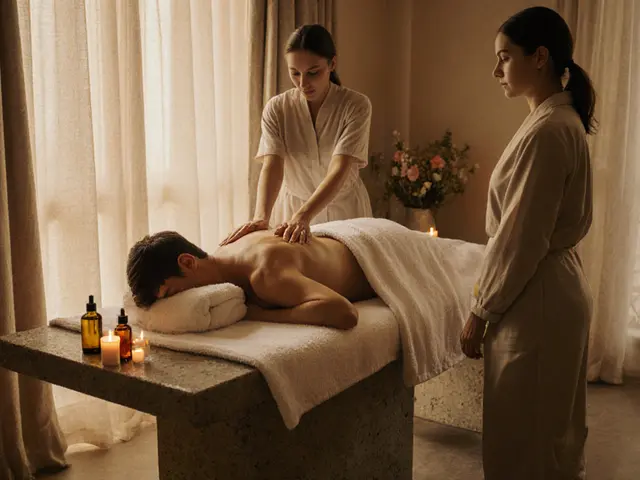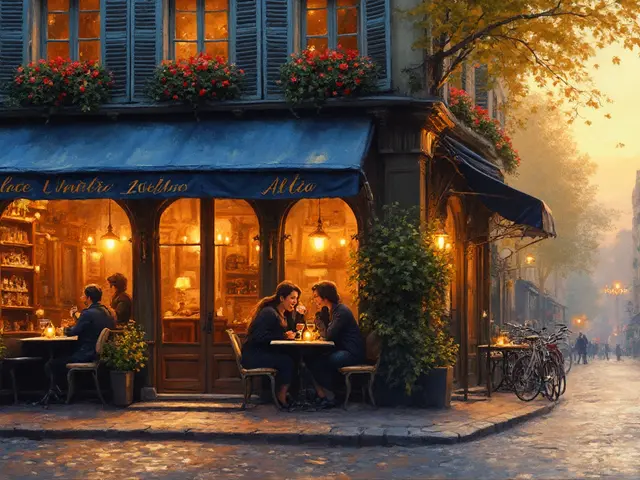Paris LGBTQ+ Nightlife Guide: Top Friendly Bars, Clubs & Spots
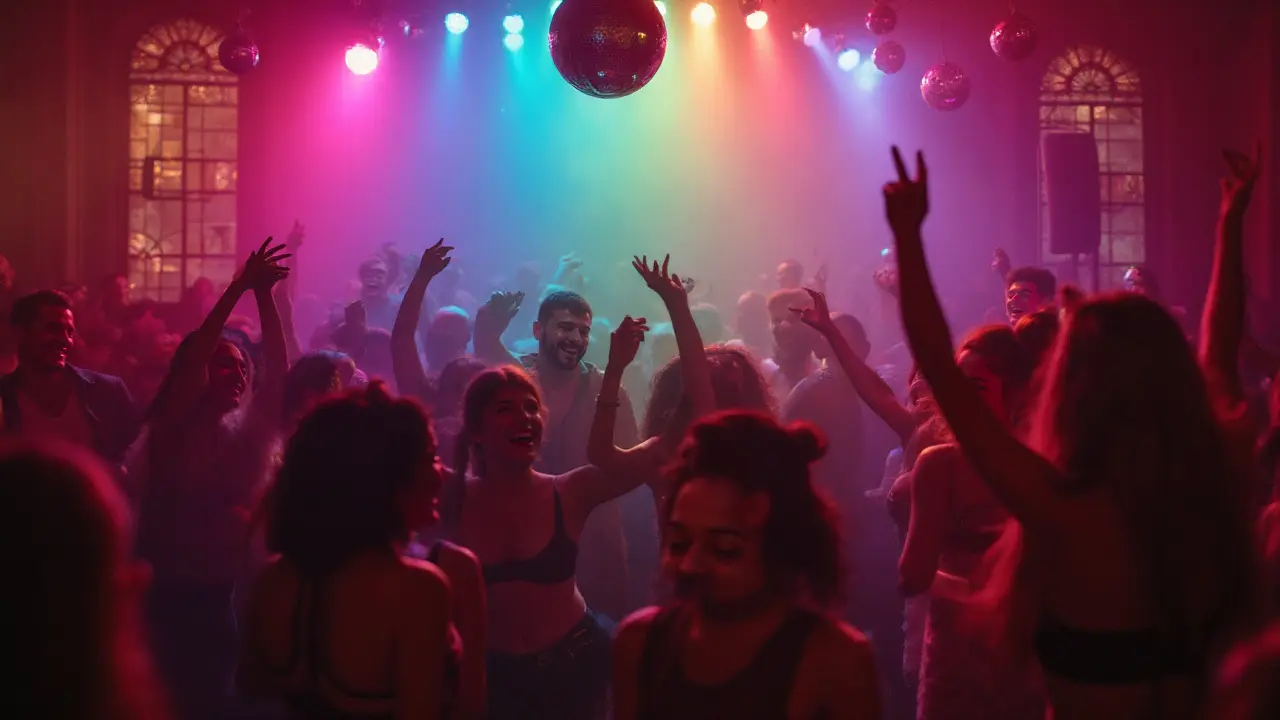
If you think Paris sleeps early, you haven't seen the Marais after midnight. The city's LGBTQ+ nightlife doesn’t just exist—it pulses through every cobblestone, filling narrow streets with music, laughter, drag queens in six-inch heels, and that unbeatable whiff of freedom. How do you find the best LGBTQ+ friendly spots in Paris without falling into the traps meant for tourists, or—worse—ending up in the kind of bar where you feel unwelcome? It takes street smarts, some local advice, and a willingness to go beyond rainbow flags hung in the windows. Ready for the reality of queer nightlife in the City of Light?
Why Parisian LGBTQ+ Nightlife Hits Different
If you asked my friend Luc—who’s Parisian, quick-tongued, and has a sixth sense for fun—he’d say: It's the blend of history, stubborn Parisian pride, and nonstop reinvention. Paris wasn’t always this open. Homosexuality was decriminalized after the French Revolution. Now, the Marais has a reputation as the heart of LGBTQ+ Paris, but you’ll find boldness and energy all over the city, from Pigalle to Belleville.
Take Le Marais: this compact, medieval tangle bursts to life with night markets, rainbow crosswalks, and bars where the party rages till the morning rattle of bakeries opening. Café Cox is a legend on Rue des Archives, packed from after-work drinks until the last métro. If you want a mixed, chatty crowd, try La Mutinerie—a feminist, intersectional bar that feels half punk, half cozy living room. You’ll snag cheap beers, a calendar crammed with queer poetry nights or T4T events, and a zero-bull policy. Perfect for anyone who hates touristy vibes and prefers somewhere you might actually make friends.
Love dancing? Ducks get their club fix at RAIDD, where the go-go boys turn showers into a spectacle. Down the block, Banana Café has been throwing wild parties for over 30 years—more of a cabaret vibe, with drag, costumes, and music from disco classics to Eurovision anthems. It’s not always chic (sometimes it’s a little sticky), but it’s inclusive, raucous, and guaranteed to make memories.
Parisian tradition runs deeper than bars. Annual events set the city sparkling, especially during June’s Marche des Fiertés—the Paris Pride march. The city goes wild with parades, open-air parties, pop-up bars along the Seine, and DJ sets that attract tens of thousands. Don’t think it’s just for the young. Retired couples, families, students, and drag queens in stiletto boots all march together. At these moments you really see what makes Paris LGBTQ+ culture special: stubborn joy, bold individuality, and a refusal to be invisible.
The Hotspots: Where to Go for a Wild (Or Chill) Night
If you’re new to Paris or haven’t ventured beyond your local, the sheer number of venues can feel overwhelming. Not every place is worth your time—or money. Locals know that the real gems aren’t always on top ten lists. Here’s what actually works for a fun, friendly night:
- LGBTQ+ nightlife Paris finds its beating heart in Le Marais, but don’t just settle for the first neon-lit bar you see. Ask around. The secret codes? Packed terrasse equals energy. Rainbow flags don’t always mean friendly staff. Trust vibes over décor.
- For classic Marais cool, try Les Souffleurs. It’s tiny, feels intimate (even crowded), and hosts everything from themed documentary screenings to early morning afterparties. If you love a dive bar, this is your home.
- If dancing is your aim, Aérosol is an unexpected treat. This open-air space in the 18th combines street art, food trucks, and occasional queer dance nights under rolling graffiti walls. Not every party is for everyone—check themes. Sometimes it’s drag, sometimes techno, sometimes just chilled street food and art talk.
- Dark rooms your thing? Paris has no shortage. Raidd Bar—known worldwide for those infamous shower shows—is campy, flirty, and bold, but entry lines can stretch on weekends. Early arrival means better spots (and shorter waits).
- For trans-inclusive, intersectional parties, turn to La Mutinerie’s event page (usually on Insta or Facebook). Their Queer Arab nights, poetry slams, and T4T socials are legendary for a reason. I’ve seen more first dates, grumpy exes, and blossoming friend groups here than anywhere else.
- Don’t miss Sunday Tea Dances at Le Tango (“La Boîte à Frissons”). The crowd? Mixed, ageless, and full of regulars who’ve been coming since the ’80s. Think old-school disco, French pop, and the best ’70s drag this side of the Seine. It’s low-pressure, with laughter echoing under colored lights.
- Speaking of the Seine, La Flèche d’Or (when it hosts queer nights) draws a more alternative, electronic scene. Sometimes you’ll see voguing competitions or queer house collectives bringing Brooklyn energy to Paris’s ancient train station vibes.
Not every hot spot is above ground: Les Bains Douche (the revived club in the 2nd) dips into queer-friendly pop-up nights that merge the old Studio 54 energy with sharp Parisian irreverence. Shows sell out quickly, so plan ahead.
And for introverts or the crowd-averse? Paris’s LGBTQ+ scene isn’t all wild nights. Loads of bookshops, cozy independent cinemas (like Le Brady), board game bars, and relaxed cafés quietly welcome queer folks every day—you just have to look for subtle rainbow pins, stickers, or certain books on the shelves (like Édouard Louis or Virginie Despentes—local legends).
Taxis are less popular for nightlife—everyone relies on the Metro until it closes (around 1:15am on weekdays, 2:15am weekends), then shared rides or night buses. Don’t flash cash. Paris pickpockets target the tipsy, especially around Châtelet. Keep your phone safe and tell a friend your plans, just as you would anywhere.
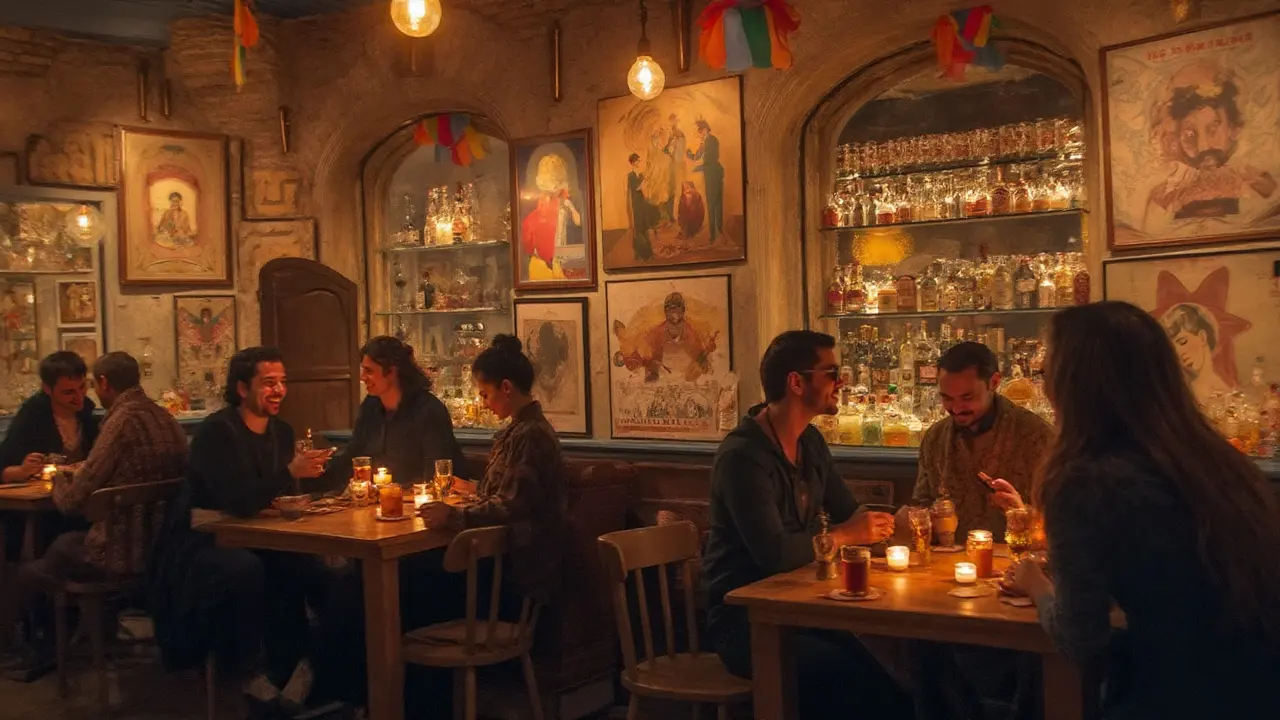
Events, Traditions, and Local Etiquette
The best thing about queer Paris isn’t a venue or a DJ—it’s the sense of being plugged into a tradition. Parisians cherish liberty (and cheek), and LGBTQ+ culture is an old thread here, woven deep into art, politics, and daily life. It’s more than a parade in June. It’s café debates over queer fiction, small protests for trans rights outside Mairie du 3ème, or steamy jambon-beurre sandwiches scarfed at 3am with strangers turned friends outside a favorite club.
Besides the legendary Pride parade, watch for annual events that fly under the tourist radar: Queer Week at Sciences Po packs in art shows, panels, and radical drag brunches. Paris Fetish draws thousands every spring. Lesbian & Feminist Film Festival at Le Brady screens everything from Camp classics to cutting-edge documentaries.
Etiquette? Don’t barge into a new space without a little humility—even if you’re local, every bar has its regulars and routines. Buy your round at the bar (table service is rare); never assume photos are okay, especially on drag or fetish nights. Always greet bartenders with a bonsoir, and don’t be shy to strike up conversation. Parisians warm up fast after the first round.
If you plan to take someone home, check their comfort level. Not all Parisian apartments are party-friendly (paper-thin walls, cranky neighbors). Sometimes a nightcap on the quays, feet dangling over the Seine, beats any club finale. Speaking of romance—while French is the language of love, English works in most clubs, but you’ll get points for trying a few phrases.
Local brands like La Garçonnière and Maison Close occasionally team up for pop-up parties, selling everything from cheeky tees to custom harnesses. Bring a little cash for souvenirs—many venues run on tight wallets and community support. Tip staff, buy a round for your crew, and donate to the drag queens hustling on stage.
Parisian LGBTQ+ Nightlife: Myths, Realities, and Smart Advice
Plenty of travel blogs make sweeping claims about Paris’s wild queer scene—or pretend it’s always safe and easy. The truth is more complicated, and, honestly, a lot better. Yes, most neighborhoods are tolerant. But even Paris has its shadow side: homophobic incidents have spiked during political tensions, and visitors sometimes get caught off guard, especially late at night outside safe zones like the Marais. Stick with friends, avoid dark alleyways near Les Halles or Gare du Nord after drinking, and keep an eye on each other.
Tourists often chase big-name clubs and leave disappointed. The shining secret? Paris’s best nights happen in the little places, at pop-up parties, and with people you meet by accident. That’s why locals bounce between venues—one drink here, a dance there, a snack at Au Petit Fer à Cheval, and the next thing you know, you’re sharing breakfast pastries before sunrise.
If you’re new, start early. Happy hours in Paris stretch long (5-8pm in many bars) and let you get a feel for the crowd before the wild side wakes up. Weeknights are just as lively as Saturdays. Wednesday might have a drag bingo, Thursday a DIY cabaret, and Friday a poetry slam—stale nightlife, Paris is not.
The queer community in Paris looks out for its own, especially after some rough years battling rising rents, bigotry, and COVID closures. Support small venues. Go to the less-polished places, tip performers, and share your best finds with someone new. The apps (Grindr, HER, Hornet) work, but the magic happens in real life, on sticky dancefloors and crowded terrasses in the dawn light. Don’t worry about dressing ‘French’—wear what feels good, celebrate yourself, and remember the only real fashion rule is confidence. If you get lost (easy after two margaritas at Andy Wahloo), ask for directions—Parisians grumble, but they always help out another night owl.
Navigating Paris’s LGBTQ+ friendly nightlife is not about hitting party after party—it’s about finding your own place in a city that’s always in motion. Trust your instincts, savor the surprises, and above all, stay curious. That’s where the real Parisian magic starts.

